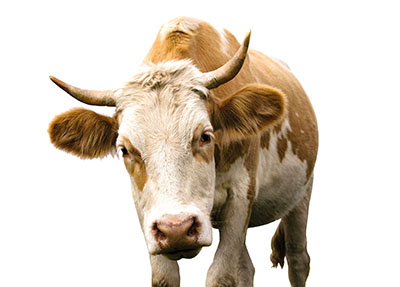Quiz - Not Just For Herbivores
They can be sweet, they can be hot, they can literally spice up your life—but herbs and spices can be good for your health too. Herbs like basil, parsley, thyme, and dill are filled with both flavor and healthy compounds, and they can replace salt and sugary sauces in your meals. So can spices like cinnamon, cardamom, allspice, and cloves. If you’re mouth isn’t watering already then take a moment to take our quiz:

1. Research has shown that many herbs and spices possess antioxidants, as well as anti-inflammatory and anticarcinogenic compounds that can help protect against disease.
A. True
B. False
2. A smart way to season meats and steamed veggies without using salt, butter, or sugary sauces is to add ____ instead.
A. Black pepper
B. Oregano
C. Lemon pepper
D. Cinnamon
E. Any of the above
3. All of the following seasonings are low in sodium EXCEPT for ____.
A. Allspice
B. Lime juice
C. Chili powder
D. Ketchup and mustard
E. Horseradish
4. The health benefits of herbs can be accessed easily by taking herbal supplements.
A. True
B. False

5. Canned foods—including soups with lots of herbs and spices—are still high in sodium.
A. True
B. False
6. For table salt, the recommended 2,300 mg of sodium a day is equal to ____.
A. One tablespoon
B. 2.5 teaspoons
C. One teaspoon
D. Half of a tablespoon
Answers:

1. A. True. Cloves, rosemary, sage, and oregano are among the herbs and spices noted as a source of antioxidants. Chili pepper, ginger, turmeric, garlic, and black pepper have also shown to be beneficial additions to a well-balanced diet.
2. E. Any of the above. Lemon juice and vinegar are also good alternatives for adding flavor while cooking.
3. D. Ketchup and mustard. Dry mustard is low in sodium, but packaged mustard, along with its common companion ketchup, is high in sodium and should be used in limited amounts.
4. B. False. Dietitians and physicians prefer that people receive nutrients, vitamins, and minerals from their food first. Patients following a well-balanced diet that includes herbs and spices will most likely not need supplementation. Also, herbal supplements are not regulated by the U.S. Food and Drug Administration. If you feel a supplement will help you with a health issue, always speak with your doctor about it first.
5. A. True. Canned and packaged meats, fish, vegetables, soups, and tomato juice are often high in sodium or sodium chloride, which is the same as salt. Check the labels to help limit your sodium intake to less than 2,300 mg a day, or if you are at risk for high blood pressure or diabetes, less than 1,500 mg a day.
6. C. One teaspoon. For people who are restricting their sodium, their limit 1,500mg is equal to a ¾ teaspoon. You can pre-measure this amount and put it on the dinner table to avoid adding to much to your food. But with generous and creative use of herbs and spices, you may find you don’t need to add salt at all.
Sources: The Health Library and Julia Gammon, RDN, LD, an Education Specialist/Dietitian in the Wellness Center at St. Joseph’s/Candler.